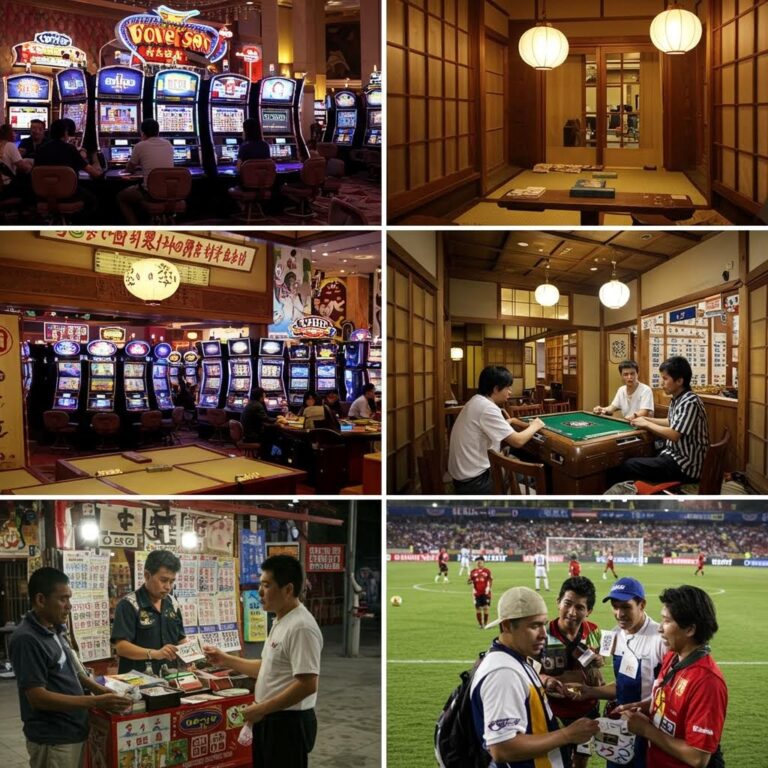The Online Poker Trap: From Academic Excellence to Addiction
Understanding the Descent from Student to Gambler
Online poker addiction among college students represents a growing crisis in academic institutions. What begins as recreational gaming between study sessions often transforms into compulsive gambling behavior, derailing promising academic careers. The initial thrill of early wins creates a dangerous psychological hook, leading students down a path of academic decline.
Warning Signs and Risk Factors
The progression from casual player to problem gambler manifests through several critical indicators:
- Disrupted sleep patterns and marathon gaming sessions lasting 30+ hours
- Academic performance decline marked by missed lectures and falling grades
- Financial instability characterized by obsessive balance checking
- Social isolation and withdrawal from peer relationships
- 토토사이트 먹튀검증
- Time management deterioration affecting study schedules
Impact on Academic Performance
The consequences of online poker addiction extend beyond the virtual poker table:
- Compromised concentration during lectures
- Incomplete assignments and missed deadlines
- Deteriorating GPA and academic standing
- Risk of academic probation or expulsion
- Lost scholarship opportunities
Recovery and Academic Rehabilitation
Students can reclaim their academic potential through structured intervention:
- Professional gambling addiction counseling
- Participation in peer support groups
- Implementation of strict gaming controls
- Time management restructuring
- Academic skills retraining
- Financial counseling and budgeting assistance
Prevention Strategies
Educational institutions can help students avoid the online poker trap through:
- Early awareness programs about gambling addiction
- Campus-wide support systems
- Regular monitoring of at-risk students
- Integration of responsible gaming education
- Access to immediate intervention resources
#
The Path to Academic Excellence
# The Path to Academic Excellence
Building a Foundation for Educational Success
Academic achievement requires unwavering dedication from the earliest stages of education.
Through consistent effort and strategic study habits, students can develop the skills necessary for long-term success.
The journey begins with cultivating a growth mindset and establishing clear academic goals.
Developing Advanced Study Techniques
Students who excel academically often demonstrate mastery through intensive preparation and systematic learning approaches.
Maintaining exceptional grades while managing advanced placement coursework demands effective time management and organizational skills.
Top performers frequently engage in:
- Active learning strategies
- Deep subject comprehension
- Strategic course planning
Maximizing Academic Potential
True educational excellence extends beyond standard coursework.
Engaging with teachers outside class hours and participating in academic competitions provides additional learning opportunities.
Students who consistently rank at the top of their class typically demonstrate:
- Strong analytical abilities
- Advanced problem-solving skills
- Superior research capabilities
Creating a Competitive Academic Profile
Success in higher education preparation requires building a comprehensive portfolio of achievements.
Advanced placement programs and sustained academic performance create a solid foundation for elite university admissions.
Top students consistently demonstrate:
- Academic rigor
- Intellectual curiosity
- Sustained performance excellence
First Taste of Online Gambling
The Hidden Dangers of Online Gambling: A Personal Journey
First Encounter with Digital Betting
Online poker emerged as an unexpected temptation during a crucial academic period.
The sophisticated digital platform offered 24/7 gambling accessibility directly through a personal computer screen, providing unprecedented privacy and convenience for inexperienced players.
Initial Investment and Early Success
A modest $50 initial deposit marked the entry into virtual gambling, funded through legitimate part-time employment earnings.
Strategic preparation through poker tutorials and training materials created an illusion of controlled gaming.
An early tournament victory yielding $200 reinforced dangerous misconceptions about gambling vs. skill-based gaming.
Escalation Patterns and Warning Signs
The transition from casual entertainment to compulsive gambling behavior manifested through:
- Between-class gaming sessions
- Late-night gambling marathons
- Obsessive balance monitoring
Early winning streaks established a deceptive pattern of false confidence, masking the developing signs of problematic gambling habits.
The perceived pathway to financial independence through online betting threatened academic performance and personal stability.
Warning Signs Ignored
Warning Signs of Online Gambling Addiction
Early Warning Signals and Rationalization
Financial volatility became the first major red flag during those early months of online poker. Bank account fluctuations, initially dismissed as normal variance for professional players, signaled a growing problem.
Compulsive behavior patterns emerged through skipped meals and missed classes, all justified under the guise of developing “valuable career skills.”
Social Isolation and Relationship Impact
The deterioration of social connections manifested through multiple channels. When concerned friends voiced their worries about excessive online activity, their feedback was rejected as misunderstanding of professional poker culture.
Withdrawal from social commitments included abandoning study groups and intramural sports participation. Missing significant family events, like a sister’s graduation, for a $2,000 potential win highlighted the severity of addictive behavior.
Physical and Lifestyle Changes
Environmental isolation became increasingly severe, characterized by:
- Extended periods alone in a darkened dorm room
- Dependence on energy drinks and delivery food
- Disrupted sleep patterns rationalized as strategic gaming timing
- Complete inversion of normal daily routines
These behavioral changes, classic indicators of gambling addiction, were masked by perceived opportunities for financial gain. The progressive nature of these warning signs demonstrated the classic progression of addictive behavior, even as each symptom was rationalized or dismissed.
Impact on Mental Health
The Mental Health Impact of Gambling Addiction
Psychological Deterioration and Anxiety
Gambling addiction takes a severe toll on mental wellness, triggering rapid psychological deterioration.
Anxiety levels intensify dramatically during losing streaks, while clinical depression manifests as a persistent mental fog.
Sleep disorders become prominent, with affected individuals experiencing extreme patterns – marathon gambling sessions lasting over 30 hours followed by extended periods of exhaustion, disrupting academic and professional commitments.
Social Isolation and Emotional Instability
Social withdrawal becomes increasingly apparent as gambling addiction progresses. Individuals typically distance themselves from support networks, avoiding accountability for declining performance and visible exhaustion.
Mood disorders manifest through extreme emotional fluctuations – euphoric states following wins rapidly transition to severe depression after losses.
Panic attacks frequently emerge when financial resources become strained.
Cognitive Impact and Physical Manifestations
The psychological burden of gambling addiction creates intense cognitive dissonance – the rational understanding of self-destructive behavior clashes with an uncontrollable compulsion to continue gambling.
Self-esteem issues intensify as academic performance suffers and recovery attempts fail repeatedly.
Physical symptoms of mental distress emerge, including:
- Chronic headaches
- Gastrointestinal problems
- Significant weight fluctuations
- Sleep disruption
- Stress-related disorders
These manifestations represent classic indicators of severe gambling disorder and its comprehensive impact on mental health functioning.
Breaking Free From Addiction
Breaking Free From Addiction: A Comprehensive Recovery Guide
Understanding and Acknowledging Gambling Addiction
Breaking free from gambling addiction begins with recognizing the signs of problematic behavior.
The crucial first step involves acknowledging that gambling has become unmanageable and is negatively impacting your life. This self-awareness serves as the cornerstone for lasting recovery and transformation.
Professional Support and Treatment Options
Professional intervention plays a vital role in sustainable recovery.
Certified gambling addiction counselors provide specialized treatments including:
- Cognitive Behavioral Therapy (CBT)
- Exposure therapy
- Financial counseling
- Trigger identification and management
- Stress reduction techniques
Building a Gambling-Free Life
Practical Recovery Steps
- Implement financial barriers and controls
- Block access to gambling platforms
- Establish healthy daily routines
- Develop alternative coping mechanisms
Support Systems and Community
- Join recovery support groups
- Connect with addiction recovery networks
- Build relationships with understanding peers
- Engage in constructive activities
Maintaining Long-Term Recovery
Sustainable recovery requires ongoing commitment and vigilance. Focus on:
- Regular therapy sessions
- Active participation in support groups
- Development of new interests and hobbies
- Continuous self-monitoring and accountability
Remember that recovery progresses at different rates for each individual. With dedicated support systems and professional guidance, breaking free from gambling addiction becomes an achievable goal.

